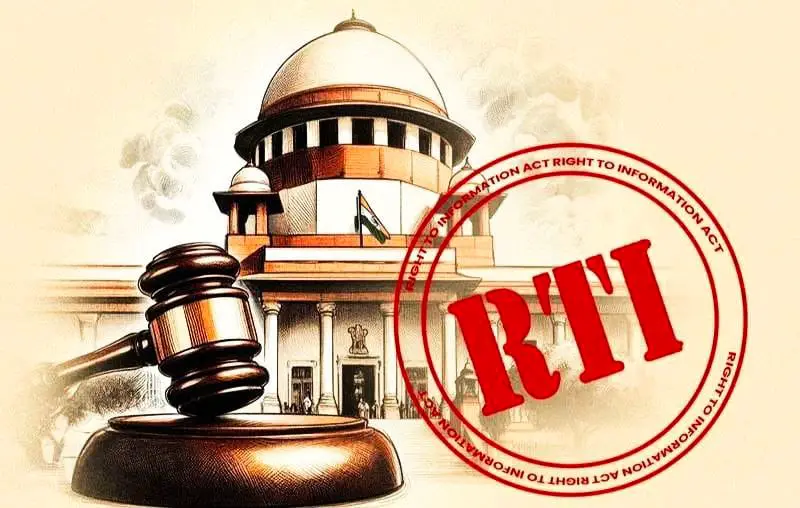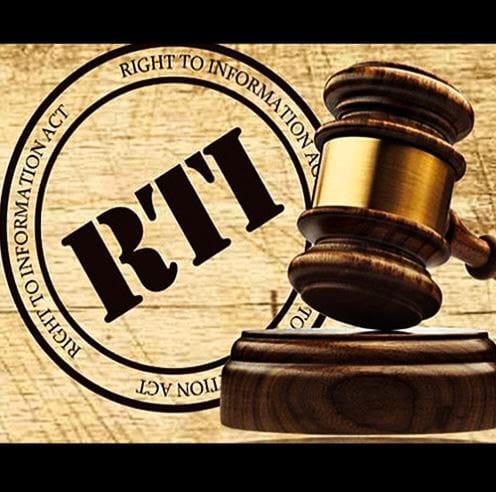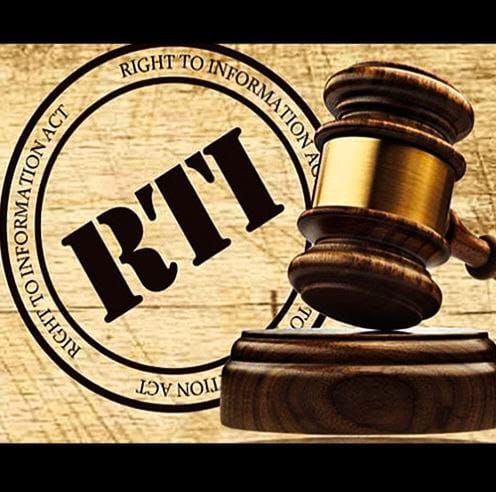Right to Information (RTI) Act, 2005
The Right to Information (RTI) Act was enacted by the Indian Parliament in 2005 to promote transparency and accountability in the functioning of public authorities. The Act empowers citizens to access information held by the government and public institutions, thereby fostering good governance and addressing corruption.

Objective of the RTI Act
The primary objective of the RTI Act is to:
- Ensure transparency in government functioning.
- Empower citizens to request information from public authorities.
- Promote accountability by allowing public scrutiny of governmental actions and decisions.
- Reduce corruption by making the functioning of the government more open and accessible.
- Strengthen democracy by making public authorities more responsible to the people.

Key Provisions of the RTI Act
- Right to Access Information:
- Every citizen has the right to request information from any public authority.
- Public authorities are required to provide the requested information within 30 days of the request, and in certain urgent cases (such as those related to life or liberty), information must be provided within 48 hours.
- Information includes records, documents, memos, emails, opinions, advice, press releases, circulars, orders, logbooks, contracts, reports, and electronic data.
- Public Authorities:
- The Act applies to all public authorities, including government departments, ministries, local bodies, and autonomous institutions owned or substantially financed by the government.
- It also applies to Non-Governmental Organizations (NGOs) that are substantially financed by the government.
- Public Information Officers (PIOs):
- Every public authority is required to appoint Public Information Officers (PIOs) to process requests for information and provide it to citizens.
- If the information is not provided or the application is rejected, the applicant can appeal to higher authorities, ultimately to the State Information Commission or Central Information Commission.
- Information Exemptions:
- Certain types of information are exempted under the RTI Act to protect national security, sovereignty, and public safety. These exemptions include:
- Information that would affect the security or economic interests of the state.
- Information that may endanger life or physical safety of any person.
- Cabinet papers and deliberations before making decisions, although the reasoning behind the decision must be disclosed after the decision is made.
- Information that is deemed to infringe on privacy or is commercially sensitive.
- Despite these exemptions, public interest is a critical factor, and if the public interest outweighs the harm, the information may still be disclosed.
- Certain types of information are exempted under the RTI Act to protect national security, sovereignty, and public safety. These exemptions include:
- Appeals and Complaints Mechanism:
- If a citizen is dissatisfied with the response or denial of information, they can file an appeal with a senior officer within the public authority.
- If unsatisfied with the appeal decision, the citizen can approach the State Information Commission or Central Information Commission.
- The Information Commissions are responsible for ensuring compliance with the RTI Act and addressing grievances. They can impose penalties on public authorities for failing to provide information or for delaying responses.
- Proactive Disclosure:
- Public authorities are required to proactively disclose certain information without citizens needing to file a request. This includes:
- Organizational structure, functions, and powers of the public authority.
- Budgetary information, including plans, proposed expenditures, and reports on disbursements.
- Details of subsidies and concessions provided by the government.
- Contracts and tenders issued by the government.
- The aim of proactive disclosure is to reduce the need for formal RTI applications by making essential information readily available to the public.
- Public authorities are required to proactively disclose certain information without citizens needing to file a request. This includes:

Importance of the RTI Act
- Empowerment of Citizens:
- The RTI Act empowers citizens by giving them a tool to demand accountability from the government. It transforms the relationship between the state and its citizens by making information a right, rather than a privilege.
- Enhanced Transparency:
- By making government processes open to public scrutiny, the RTI Act helps reduce opacity in government functioning. It encourages open governance, and citizens can track how public resources are being utilized.
- Combating Corruption:
- The RTI Act is a critical tool in combating corruption. It allows citizens, civil society organizations, and journalists to expose corrupt practices by demanding detailed information on government contracts, expenditures, and actions.
- Strengthening Democracy:
- The Act enhances participatory democracy by making citizens more involved in the democratic process. Access to information allows citizens to make informed decisions and hold elected representatives accountable.
- Improving Public Services:
- By creating a system of accountability, the RTI Act can lead to better delivery of public services. Public authorities are under constant scrutiny, ensuring that they provide quality services efficiently and in a timely manner.
- Judicial and Administrative Reforms:
- The RTI Act has often been used to highlight inefficiencies or delays in administrative processes. Through the information revealed via RTI applications, reforms in administrative procedures and judicial processes can be implemented.

Challenges in the Implementation of RTI
- Lack of Awareness:
- Despite its importance, many citizens, particularly in rural areas, are unaware of their right to access information under the RTI Act. This lack of awareness hampers the full realization of the Act’s benefits.
- Bureaucratic Resistance:
- There is often resistance within the bureaucracy to provide information, due to the culture of secrecy that has historically governed Indian public institutions. Some public authorities tend to delay responses or withhold information without valid reasons.
- Inadequate Infrastructure:
- Public authorities may lack adequate infrastructure, including trained staff and resources, to efficiently handle the large volume of RTI applications. This results in delays in processing requests.
- Harassment of RTI Activists:
- Many RTI activists have faced harassment, threats, and even violence for exposing corruption or mismanagement through the use of the RTI Act. This deters people from filing RTI applications, especially in areas where corruption is widespread.
- Pending Appeals:
- A significant number of RTI appeals are pending with Information Commissions due to a lack of sufficient personnel and resources. This leads to delays in resolving grievances and appeals.
- Misuse of RTI:
- Some individuals have misused the RTI Act by filing frivolous or excessive requests that burden public authorities and divert resources from more pressing needs.

Amendments and Controversies
- RTI Amendment Bill, 2019:
- The RTI Amendment Bill, 2019 was introduced to make changes to the terms and conditions of service of the Chief Information Commissioner (CIC) and Information Commissioners (ICs). It allowed the central government to decide the tenure, salaries, and allowances of the CIC and ICs, which was previously determined by the Act.
- Critics argue that this amendment weakens the autonomy of the Information Commission, as it could lead to undue influence by the government in the functioning of the RTI framework.
- Delays in Information Commissions:
- Many states have faced issues with vacancies in State Information Commissions and delays in appointing Commissioners, leading to backlogs in RTI appeals. This has undermined the effectiveness of the RTI system in certain regions.
Significance of the RTI Act
- Democratic Empowerment:
- The RTI Act democratizes information and places citizens at the center of governance. It strengthens the rule of law by ensuring that government actions are subject to public scrutiny.
- Promoting Accountability and Good Governance:
- RTI has played a pivotal role in improving governance by holding public officials accountable for their decisions and actions. It has been used to expose corruption, mismanagement, and policy failures across various sectors.
- Public Participation:
- The Act encourages citizen participation in governance by empowering individuals to engage with public authorities and demand information. This has a positive impact on policy formulation and implementation, as the government becomes more responsive to citizen needs.
Conclusion
The Right to Information (RTI) Act is a landmark law that has transformed governance in India by making information accessible to the public, thereby promoting transparency, accountability, and citizen empowerment. However, for the RTI Act to achieve its full potential, challenges like bureaucratic resistance, delays in information dissemination, and lack of public awareness need to be addressed. As a powerful tool for citizens, RTI plays an essential role in strengthening democracy and ensuring better governance in India.

